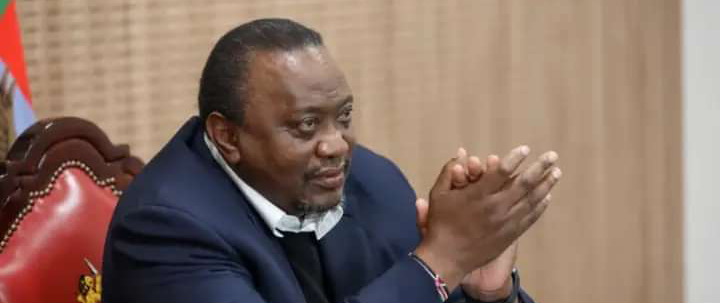
Uhuru’s Exit Diary: What The President Can Or Cannot Do Now.
In eleven days, time President Uhuru Kenyatta enters the lameduck period where part of his presidential powers will be limited, pushing him to a season where he cannot hire or fire any State or public official, nor confer any national honors.
On the night of August 8th, President Kenyatta will be reduced to just overseeing government operations as a caretaker president up until he hands over power, which could take him to late November should the presidential election be successfully challenged at the Supreme Court.
The President has in recent weeks been on a farewell mode attending events in his honour or thanking congregations for having supported him in his ten-year assignment.
He has also been on a path to launch or commission projects put up during his tenure.
While he will remain president until handing over to the next Head of State, his power will greatly be reduced on the night of August 8th.
He will no longer have the power to nominate or appoint judges of the superior courts, nor to nominate or appoint any other public officer.
Even though he could still convene Cabinet meetings, the President can no longer nominate, appoint or even dismiss members of his Cabinet, Principal Secretaries or other State or public officers in government or public institutions.
He will no longer exercise the power of mercy in pardoning any convicted offenders nor confer national honors on anyone.
Over the past few months and weeks, the President has been executing some of these powers before they expire on him.
On July 20, President Kenyatta appointed and swore in seven judges of the Court of Appeal. This was three months after appointing 24 Ambassadors, High Commissioners and heads of foreign missions.
On June 1 during Madaraka Day celebrations, Kenyatta pardoned over 3,900 convicts; a function he can no longer exercise after the election day.
On July 8, the Commander-in-Chief conferred what could easily be his final honors of 508 Kenyans.
But even as some of his powers reduce on the election day, he could remain in office for longer.
By law, IEBC must declare the presidential election results by August 15, being a week from the date of election.
If no petition against the election outcome is filed at the Supreme Court, then the new President will be sworn in on Tuesday August 30, paving way for Kenyatta to retire.
Should the presidential election outcome be challenged with a petition, such must be filed by August 22, holding that IEBC declares the results on 15th.
Should that happen, the Supreme Court will have 14 days to consider and determine the petition by September 5.
If the election is upheld, the new president would be sworn in on September 13 allowing President Kenyatta to retire.
And if the presidential election is nullified by the Supreme Court, a fresh election must be conducted by November 4 being the last day of a 60-day requirement.
However, if the August 9 election does not produce a clear winner in the first round, a fresh election should be held within 30 days, pitting the top two contenders in a repeat duel.
And as President Kenyatta takes stock of his presidential mission, he has pending engagements including the official commissioning of the Nairobi
Expressway, and commissioning of the Kisumu Shipyard Limited that has been building a new ship.
The president is expected to unveil a Police Level 4 Referral Hospital in Nairobi and the Kirigiti stadium in his home county of Kiambu.
